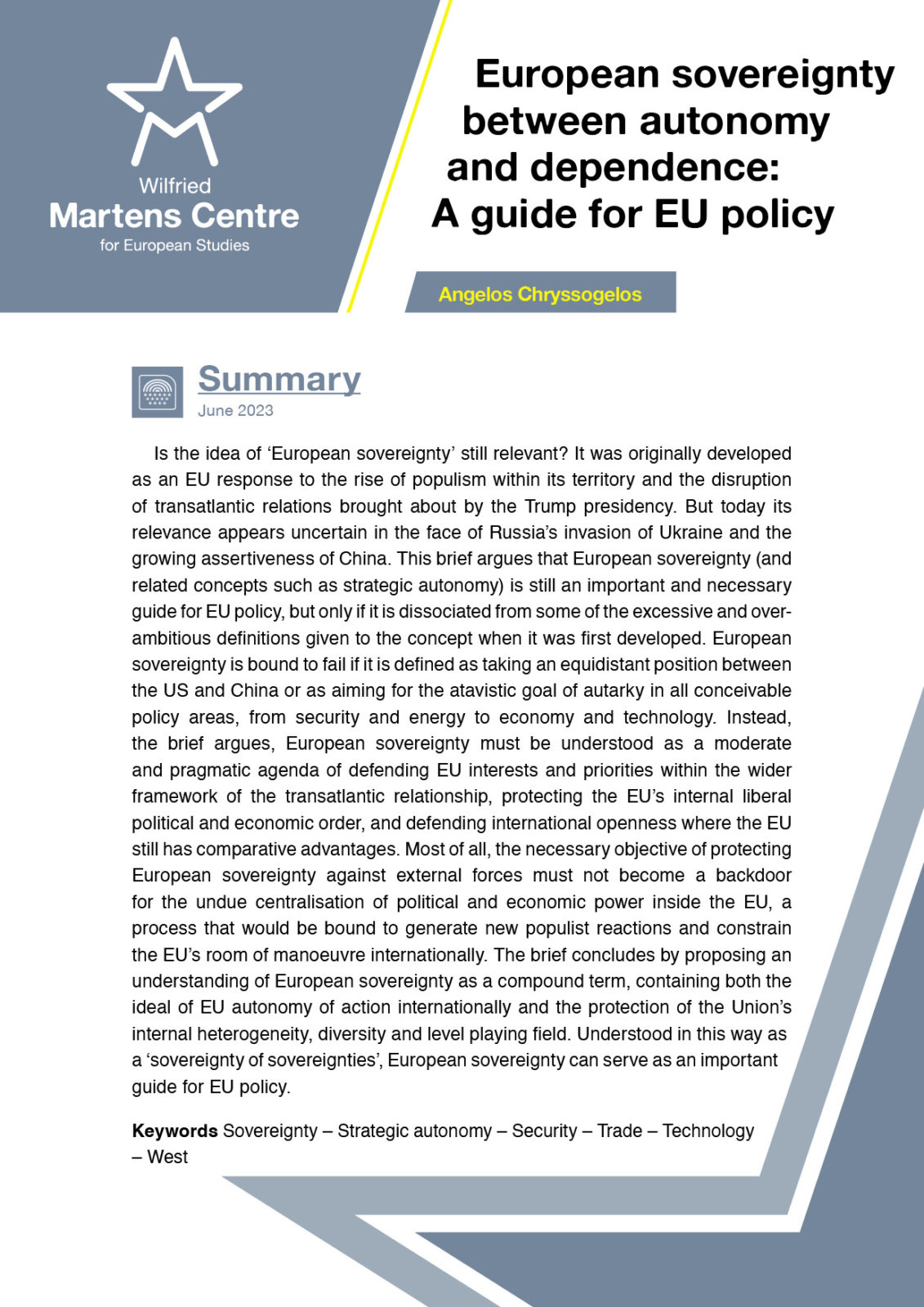European sovereignty between autonomy and dependence: A guide for EU policy
22 June 2023
Is the idea of ‘European sovereignty’ still relevant? It was originally developed as an EU response to the rise of populism within its territory and the disruption of transatlantic relations brought about by the Trump presidency. But today its relevance appears uncertain in the face of Russia’s invasion of Ukraine and the growing assertiveness of China. This brief argues that European sovereignty (and related concepts such as strategic autonomy) is still an important and necessary guide for EU policy, but only if it is dissociated from some of the excessive and overambitious definitions given to the concept when it was first developed. European sovereignty is bound to fail if it is defined as taking an equidistant position between the US and China or as aiming for the atavistic goal of autarky in all conceivable policy areas, from security and energy to economy and technology. Instead, the brief argues, European sovereignty must be understood as a moderate and pragmatic agenda of defending EU interests and priorities within the wider framework of the transatlantic relationship, protecting the EU’s internal liberal political and economic order, and defending international openness where the EU still has comparative advantages. Most of all, the necessary objective of protecting European sovereignty against external forces must not become a backdoor for the undue centralisation of political and economic power inside the EU, a process that would be bound to generate new populist reactions and constrain the EU’s room of manoeuvre internationally. The brief concludes by proposing an understanding of European sovereignty as a compound term, containing both the ideal of EU autonomy of action internationally and the protection of the Union’s internal heterogeneity, diversity and level playing field. Understood in this way as a ‘sovereignty of sovereignties’, European sovereignty can serve as an important guide for EU policy.
ENJOYING THIS CONTENT
